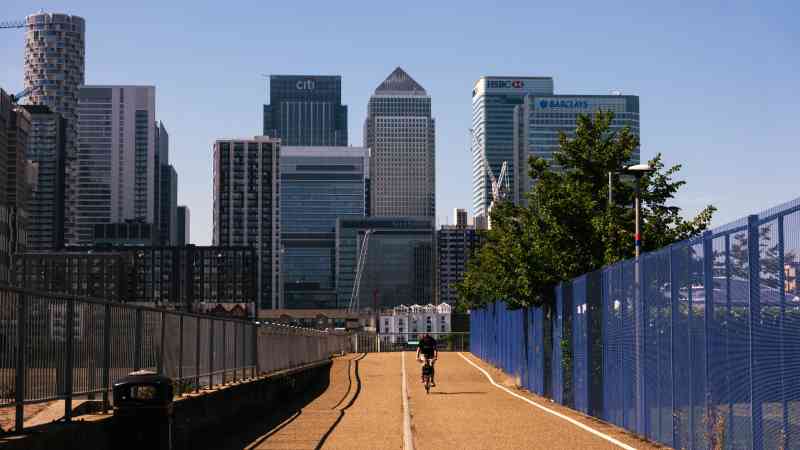My new mortgage rate is 4.17%. Is that a good deal?
We are coming up to our remortgage and have been offered a five-year rate of 4.17 per cent. We last remortgaged in October 2022 amid the mini-budget mayhem to a rate of 5.87 per cent. So the new rate is cheaper but I know it is not the lowest on the market. To us 4.17 per cent seems high for five years.
Is this now a good deal? Maybe we were being naive but we were expecting something a bit above 3 per cent.Mark, Raynes Park
The markets have calmed considerably since the mini-budget turmoil in the autumn of 2022 and mortgage rates are lower.
While interest rates went up significantly as the Bank of England tried to combat inflation, their trajectory is now downward. Last month the Bank’s base interest rate was cut for the first time in four years — from 5.25 per cent to 5 per cent.
Indicators of future rates suggest more reductions and fixed mortgage rates have reduced too, spelling good news for borrowers.
• Mortgage price war offers relief for homebuyers
You were expecting a rate just above 3 per cent, but the lowest five-year fixes for borrowers remortgaging with 40 per cent equity in their property are around 4 per cent. The rate you have been offered is close to the market-leading rates but I have some tips that may help you to secure a slightly cheaper deal.
Check the date on your deal
You took a two-year fix in October 2022. Most fixed-rate deals have a fixed end date, although they are not exactly two years on the dot. For example, those applying for a two-year rate in August 2024 are likely to have an end date for their two-year term between September 30 and December 31, 2026. Knowing exactly how long you have left on your deal will help you to plan ahead.
Look for a new deal six to eight months before yours ends
You can usually book a product transfer rate — a remortgage with the same lender — six months before your rate ends and can usually cancel this if a better rate comes up. Most mortgage offers are valid for six months.
Check your loan-to-value
Lenders typically offer the best rates to borrowers on a lower loan-to-value (LTV) — in other words, they have a bigger deposit or more equity in the property so are less risky customers.
If house prices have risen in your area or you have done works to increase value, check your lender’s valuation and ask for a new one if you think it is too low. A lower LTV could mean you are eligible for more competitive rates.
• Compare mortgage deals
If you are close to the next LTV bracket (they go down in 5 percentage point chunks, starting from 95 per cent and the cheapest deals tend to be available at 60 per cent LTV), consider whether using any spare funds to pay off some of your loan will get you a lower rate.
Shore up your finances to get mortgage ready
Don’t apply for credit just before an application and avoid spending heavily or going into your overdraft because these can affect your credit rating and affordability assessment. A stronger credit score may also help you to access better rates.
Compare the overall cost of the deal
Look beyond the headline interest rate. Some deals will have arrangement fees, valuation costs and legal fees. Generally lenders charge fees on the deals with the lowest rates, so it is important you look at the whole picture.
• Will UK mortgage rates go down again in 2024?
Depending on your mortgage size and costs involved, you may be better off paying a fee to qualify for a lower rate. Look at whether there is a better rate than the 4.17 per cent, but with a fee attached, because that might work out cheaper over the course of the deal.
Adrian Anderson is an award-winning mortgage broker and the founder and managing director of Anderson Harris, with a career spanning more than 20 years






